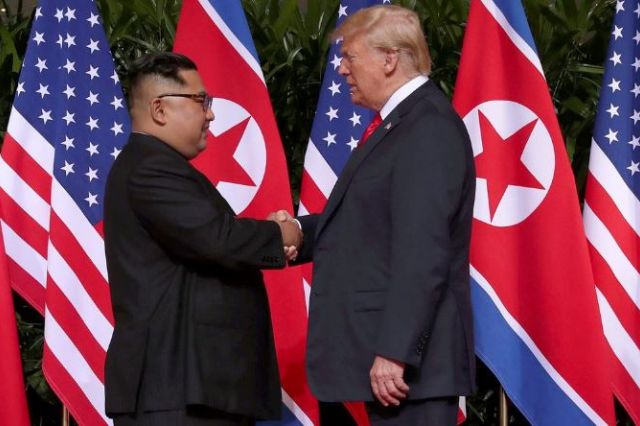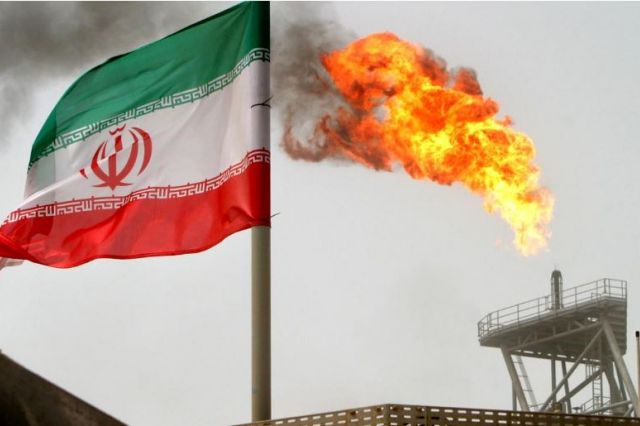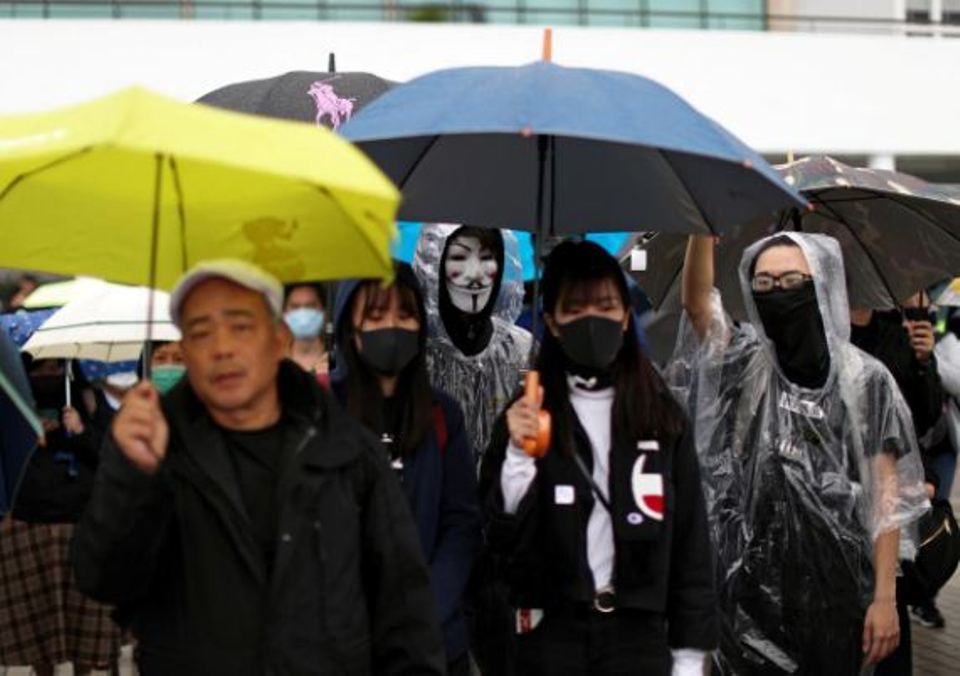UNITED STATES, Dec 31: The US-based think tank Council on Foreign Relations has released a list of the top ten world events of 2019. The list is in ascending order:
10. U.S.-North Korea fail to forge consensus
US President Donald Trump paid a visit to North Korea on June 30 becoming the first sitting US head of the state to do so. The meeting at the Demilitarized Zone took place four months after Trump met North Korean leader Kim Jong-un in Vietnam.
At the June 30 meeting, Trump and Kim agreed to resume nuclear negotiations. It wasn’t until October 1, however, that the two countries agreed on the specifics for talks, and just hours after striking that agreement North Korea launched a ballistic missile in violation of UN resolutions. Negotiators met on October 5, but the talks ended after eight hours with no agreement. In early December, Pyongyang warned the United States would have to decide “what Christmas gift it will select to get.” The last “gift” Pyongyang gave Washington was a nuclear test on July 4, 2017. As 2019 came to a close, no progress had been made in containing, let alone dismantling, North Korean’s nuclear weapons program. The prospects for 2020 aren’t any better.
9. Brexit Upends British Politics
The United Kingdom ended 2019 with clarity about Brexit, but it took a turbulent journey to get there. The year started with the country facing a March 29 deadline for leaving the European Union (EU). Prime Minister Theresa May chose that date but couldn’t persuade the House of Commons to approve the deal she struck with the EU. The main sticking point was the “backstop” provision, which avoided creating a customs barrier in the middle of the Irish Sea but saddled Britain with EU custom rules.
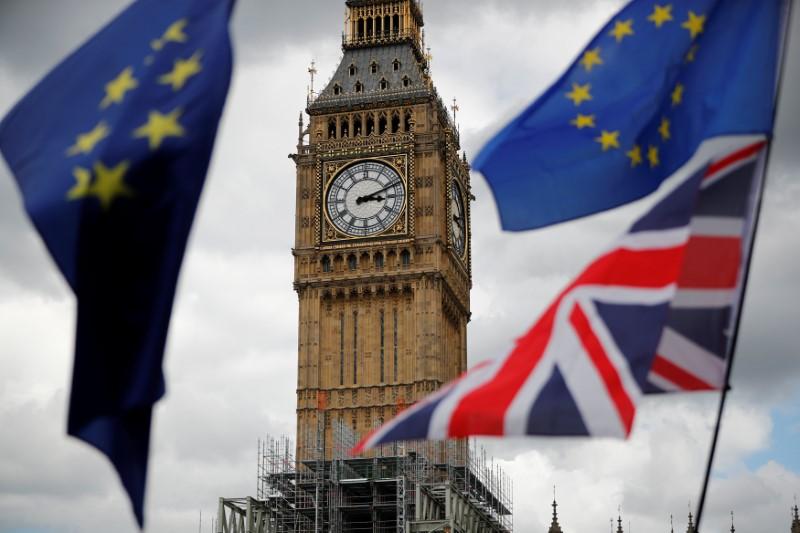
May was forced to delay Brexit until October 31, and then resigned after the House of Commons voted down her deal three times. Boris Johnson won a Conservative Party vote and became prime minister on July 24. He struck a new deal that swapped the backstop for a customs barrier between Northern Ireland and the rest of the United Kingdom. He tried a variety of debatable tactics to push the deal through Parliament before the Halloween deadline. None of them worked. Forced to extend the withdrawal deadline to January 31, 2020, Johnson called a snap election. British voters rewarded him; the Conservatives won their biggest victory in more than three decades. On December 20, Parliament voted overwhelmingly to exit the EU by January 31.
8. The U.S.-China Trade War Continues
Back in March 2018, President Donald Trump tweeted that “trade wars are good and easy to win.” That hasn’t been the case so far with his trade war with China. In February, Trump delayed imposing a new round of tariffs on Chinese goods in a bid to give negotiators time to strike a deal. In May, he concluded that the talks hadn’t progressed and imposed a new round of tariffs. In June, Trump and Chinese President Xi Jinping agreed at the G-20 summit to push ahead with trade talks.
Fashion events in Asia

In August, however, Trump announced he would place tariffs on $300 billion worth of Chinese goods effective September 1. Twelve days later, he partially reversed course, saying he would delay half those tariffs until December 15. China wasn’t mollified; on August 23 it announced tariffs on $75 billion worth of U.S. goods. Negotiators continued to meet, and on October 11 they reached tentative agreement on a “Phase 1” deal. It took another two months, though, before the details were worked out. Both sides claimed victory. However, the agreement failed to settle the major differences between the two economic superpowers, suggesting that 2020 could be turbulent on the trade front.
7. The Central American Migrant Exodus Grows
The photo of the father and daughter from El Salvador who drowned trying to cross the Rio Grande in April symbolized a U.S. asylum process in crisis. The surge in asylum-seekers at the U.S. southern border has overwhelmed the system. Many of the asylum-seekers are fleeing violence and grinding poverty in El Salvador, Guatemala, and Honduras. Under U.S. law, anyone who reaches the U.S. border and can show a “credible fear” of persecution in their home country will be admitted into the United States while their asylum petition undergoes further review. That can take years.
In March, the Trump administration pushed El Salvador, Guatemala, and Honduras to do more to keep migrants at home by freezing U.S. aid to all three countries, though some of that aid was restored in June. The administration also pressed Latin American countries to sign “safe third country” agreements requiring migrants to seek asylum in the countries they transit rather than in the United States. Critics complained that these countries lacked the resources to handle asylum claims. The U.S. Supreme Court ruled in September that the administration could deny asylum to most Central American migrants while legal challenges were being heard. At the core of these disputes are tough questions about who should be entitled to asylum in the United States.
6. Tensions Flare in the Persian Gulf
War in the Persian Gulf seemed imminent at several points in 2019. In May, four commercial ships were attacked while anchored just outside the Strait of Hormuz, through which about a fifth of the world’s oil passes. The United States accused Iran of being “directly responsible” for the attacks, a charge Iran denied. On June 6, Houthi rebels shot down a U.S. drone in Yemen with help from Iran. Two weeks later, Iran shot down a U.S. drone it said had violated Iranian airspace, a charge the United States denied.
On July 18, a U.S. Navy ship in the Strait of Hormuz destroyed an Iranian drone that had come within 1,000 yards of the vessel. Then on September 14, drones struck two major Saudi oil refineries, temporarily knocking half the country’s oil production offline. Houthi rebels claimed responsibility for the attack, but the United States and European powers concluded Iran was responsible. In October, the United States announced it was sending 3,000 additional troops and several missile defense systems to the region to protect Saudi Arabia from Iranian aggression. By year’s end, there was talk that as many as 14,000 more U.S. troops might be headed to Saudi Arabia.
5. The Amazon Burns
Mounting evidence that the planet is warming still has not galvanized global action. Brazil is a case in point. For decades, loggers and farmers have been clearing the Amazon rainforest and setting what’s left on fire in order to grow crops and graze cattle. The 80,000 fires set in 2019 were the most in a decade, and they burned an area about the size of New Jersey. As the immensity of the fires became clear, critics blamed the policies of Brazilian President Jair Bolsonaro for allowing, if not encouraging, the wanton destruction of the rainforest.

4. India Embraces Hindu Nationalism
Where is India headed? That was a popular question as 2019 came to a close. In May, Narendra Modi won a stunning victory in India’s parliamentary elections, as his Bharatiya Janata Party (BJP) increased its majority amidst the highest voter turnout in Indian history. The size of the victory prompted speculation that Modi would push an aggressive Hindu nationalist agenda. It soon became clear he would. In August, he rescinded the autonomy that Kashmir had enjoyed since independence and that was enshrined in the Indian Constitution.
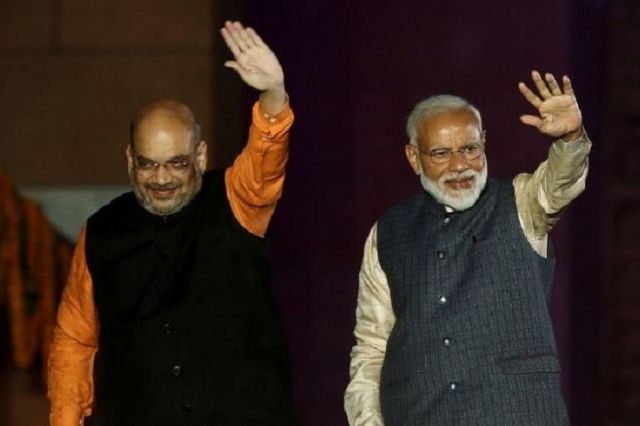
3. The United States Ends Its Support for the Syrian Kurds
Is the United States a reliable partner? That’s a question countries are increasingly asking. Beginning in 2014 the United States supported the Syrian Kurds to check the rising power of the Islamic State. The alliance was instrumental in taking back territory the Islamic State had gained; the Syrian Kurds lost 11,000 fighters in the effort. The U.S. presence in northern Syria rankled President Trump, however.
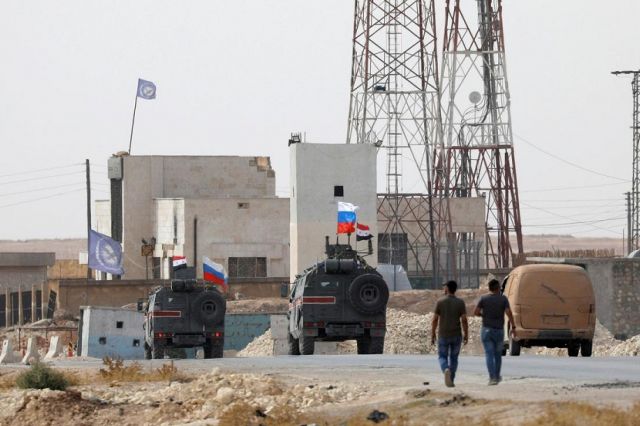 In December 2018, he announced he was withdrawing U.S. troops from Syria, a decision that prompted Secretary of Defense James Mattis to resign. The decision was quietly reversed, but Trump didn’t give up. On October 7, after a phone call with Turkish President Recep Tayyip Erdogan, Trump announced the withdrawal of U.S. Special Forces from northern Syria. Even some of the president’s closest allies called the move a “disaster in the making.” The disaster materialized two days later when Turkey invaded Syria. Abandoned by the United States, though not for the first time, the Kurds threw their lot in with Bashir al-Assad’s government. Even so, by year’s end U.S. troops and Syrian Kurds had resumed counterterrorism operations against Islamic State forces. Meanwhile, experts debated the consequences of an unpredictable U.S. foreign policy.
In December 2018, he announced he was withdrawing U.S. troops from Syria, a decision that prompted Secretary of Defense James Mattis to resign. The decision was quietly reversed, but Trump didn’t give up. On October 7, after a phone call with Turkish President Recep Tayyip Erdogan, Trump announced the withdrawal of U.S. Special Forces from northern Syria. Even some of the president’s closest allies called the move a “disaster in the making.” The disaster materialized two days later when Turkey invaded Syria. Abandoned by the United States, though not for the first time, the Kurds threw their lot in with Bashir al-Assad’s government. Even so, by year’s end U.S. troops and Syrian Kurds had resumed counterterrorism operations against Islamic State forces. Meanwhile, experts debated the consequences of an unpredictable U.S. foreign policy.
2. The U.S. House Impeaches President Donald Trump
“Quid pro quo” may be the phrase of the year. Progressive Democrats began 2019 pushing for President Trump’s impeachment. Despite the April release of the Mueller Report, which did not establish that the Trump campaign colluded with Russia during the 2016 campaign but which explicitly declined to exonerate the president on obstruction-of-justice charges, Speaker of the House Nancy Pelosi refused to open an impeachment inquiry. That changed when an anonymous whistleblower alleged in August that Trump “is using the power of his office” to pressure Ukraine into investigating Democratic frontrunner Joe Biden and his son.
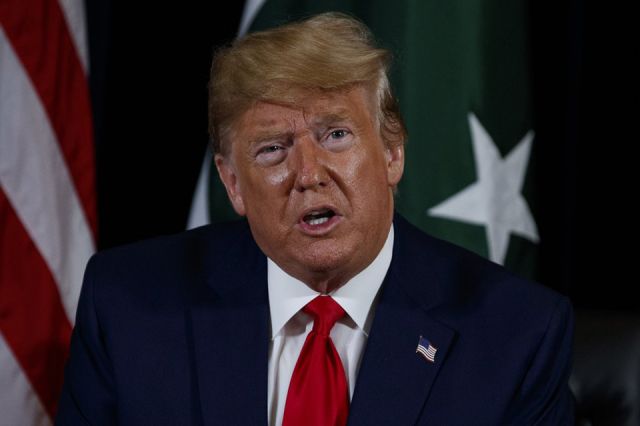
On September 24, Pelosi launched a formal impeachment probe. The next day, the White House released a rough transcript of Trump’s July 25 call with Ukrainian President Volodymyr Zelensky. Trump saw the call as “perfect,” while Democrats saw it as confirming the whistleblower’s allegation. On October 8, the White House announced it would not cooperate with what it deemed the House’s “illegitimate proceedings.” The House voted on October 31 to hold public hearings, which opened in mid-November. On December 18, the House voted along party lines to approve two articles of impeachment. As 2019 ended, it was unclear when Pelosi would send the articles to the Senate, which looked poised to quickly dismiss them.
1. Protestors Take to the Street
“The Year of Protests” may be the best summary for 2019. Hong Kong’s gained the most attention. The trigger was an extradition bill that critics said violated the one country, two systems pledge that governs the city’s relations with mainland China. Rather than fade, the protests grew into a push for more democratic rule. Pro-democracy candidates swamped pro-China candidates in Hong Kong’s November local elections, setting up a potential confrontation with Beijing in 2020. Protests rattled many other countries as well. Algerians took to the streets in February, eventually forcing President Abdelaziz Bouteflika to resign.
The protests continued into the fall as Algerians demanded a complete political overhaul. In April, Sudanese protestors pushed out President Omar Hassan al-Bashir. In October, a transit-fare-fare hike sent Chileans into the streets to protest inequality, while a proposed tax in Lebanon on WhatsApp unleashed a flood of anger. Demonstrations rocked Iraq beginning in October as protestors challenged the country’s governing institutions. In November, the end of fuel subsidies sent Iranians into the street, raising questions about the Iranian regime’s future. Protests also rocked Bolivia, India, Nicaragua, and Russia. For all the talk that authoritarianism is rising, millions of people continue to risk their lives to make governments responsive to their wishes.
Other stories to note in 2019:
In January, Juan Guiadó declared himself president of Venezuela, in compliance with the Venezuelan constitution and with the support of the United States and several dozen other countries, but incumbent President Nicolás Maduro refused to step down. In February, Macedonia changed its name to North Macedonia.
In March, a white supremacist live-streamed his attack on a mosque in Christchurch, New Zealand, that left fifty-one people dead. In April, fire devastated Paris’s historic Notre Dame Cathedral. Naruhito acceded to the Chrysanthemum Throne in May upon the abdication of his father, though his enthronement was not completed until October. Allied leaders marked the seventieth anniversary of D-Day in June. Iran began breaching the conditions of the Iranian nuclear deal. In August, the United States formally withdrew from the Intermediate Nuclear Forces Treaty with Russia.
In September, President Trump announced that peace talks with the Taliban were “dead,” a position he reversed three months later. In October, U.S. Special Forces killed Abu Bakr al-Baghdadi, the leader of the Islamic State. A 6.4-magnitude earthquake struck Albania in November, killing fifty-two people. Aung Sang Suu Kyi appeared at the International Court of Justice in The Hague in December to deny abundant evidence that Burmese troops had committed genocide against the Rohingya, triggering new calls that she be stripped of her Nobel Peace Prize.
Source: Council on Foreign Relations, United States



